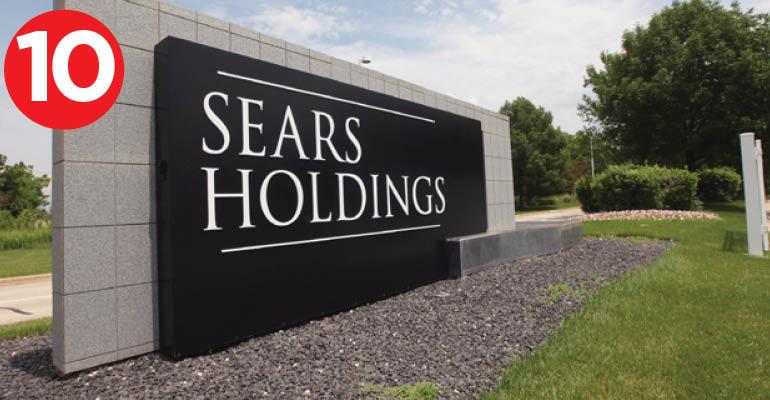- Sears Finalizing $350 Million Bankruptcy Loan with Great American—Sources “Sears Holdings Corp is finalizing a deal with financial firm Great American Capital Partners and other lenders for $350 million in critical bankruptcy financing that would keep the U.S. retailer open through the holidays, people familiar with the matter said on Wednesday. The deal would increase an existing financing package from banks to give Sears a bankruptcy loan totaling $650 million, the sources said. Bank lenders already promised $300 million when Sears filed for bankruptcy last month.” (Reuters)
- Amazon Says $3B in Tax Breaks Didn’t Sway HQ2 Decision “Amazon claims its headquarters decisions weren’t swayed by the more than $3 billion in tax breaks and other sweeteners offered by New York and Virginia — because the deals were ‘relatively modest’ compared to what else was put on the table. While incentives were a factor, Jay Carney, the senior vice president of global corporate affairs, said they weren’t the be-all and end-all.” (New York Post)
- Judge Rejects $2 Billion Deal to Overhaul City’s Public Housing “A federal judge on Wednesday rejected a sweeping settlement that would have appointed a monitor to oversee the troubled New York City Housing Authority and would have required the city to pump more than $2 billion into repairs at the authority’s deteriorating buildings. The judge, William H. Pauley III, said the settlement agreement hammered out in June between the Housing Authority, the city and the United States attorney in Manhattan did not have strong enough enforcement mechanisms, calling them ‘formless.’” (The New York Times)
- Rich Investors Eye Tax-Favored Development Funds “Wealthy investors, fund managers and real-estate developers are racing to take advantage of a tax incentive meant to spur economic growth in neglected areas. Interest in the ‘opportunity zones’ Congress created last year intensified when the Treasury Department issued the program’s first guidelines in October. The program offers tax breaks to individuals and companies for investing in selected urban and rural areas that meet income or poverty thresholds.” (Wall Street Journal, subscription required)
- Three Legal Provisions Real Estate Investors Need to Understand “Due to the legal implications of pooling investors together, the contractual documents in the world of syndications — aka crowdfunded investments — can be complicated, dense and overwhelming. Furthermore, many passive investors prefer to rely on experts because they do not have the time to be active operating partners. Reading page after page of legal jargon is quite burdensome, so it’s no surprise that many investors do not actually review the documents for each offering in which they invest.” (Forbes)
- Walmart, Ford Partner to Test Grocery Delivery with Self-Driving Cars “Walmart Inc. said Wednesday it was partnering with Ford Motor Co. to test a grocery delivery service using self-driving vehicles. The pilot program is taking place in Miami-Dade County in Florida. Walmart said Postmates, which is already connected to Ford's digital platform, serves as its delivery partner in Miami. ‘Walmart and Ford agree autonomous vehicles have an important role to play as we consider the future of delivery,’ said Tom Ward, senior vice president of digital operations at Walmart U.S.” (MarketWatch)
- A Treasured Tax Break for the Smart Real Estate Investor “The tax overhaul enacted last year made a lot of changes, but one provision cherished by real-estate investors survived: so-called 1031 exchanges. It’s the name for a tax break that lets you defer capital-gains taxes on the sale of a property used for business or investment if you reinvest the proceeds in another business or investment property. It’s often used by large real-estate investment companies, but individual investors—even those who own a single rental-income property—can take advantage of it as well. The “1031” name refers to section 1031 of the U.S. tax code.” (Wall Street Journal, subscription required)
- New York Real Estate Developers Who Stand to Profit from Amazon’s HQ2 “Amid the news about Amazon’s HQ2 announcement—the e-commerce giant chose New York’s Long Island City and northern Virginia’s Crystal City as the victors of its nationwide search—there’s the question of who in the real estate world is jumping for joy at the new opportunities. That likely includes a pair of low-profile billionaire brothers and real estate titan Jerry Speyer.” (Forbes)
- MTA to Buy Grand Central Terminal for $35M “The Metropolitan Transportation Authority plans to buy the iconic Grand Central Terminal from a private holding company for $35 million. The agency announced yesterday that its finance committee approved the purchase of Grand Central and Metro-North Railroad’s Harlem and Hudson lines from Midtown Trackage Ventures, which has owned the assets for nearly a decade and leased them to the MTA, according to a press release. It expects the full board to approve the plan on Thursday.” (Commercial Observer)
- The New Brothels: How Shady Landlords Play a Key Role in the Sex Trade “Most tenants of a drab, four-story building in Park Slope, Brooklyn, knew about the brothel in their building. Strange men buzzed their apartments at all hours, looking nervous as they headed toward the same two apartments where many residents believed sex was being sold. Calling the landlord was useless, several tenants said. ‘I thought it was strange that he didn’t seem worried about it,’ one woman who lived in the building for seven years said. ‘It was so out in the open.’” (The New York Times)
0 comments
Hide comments

